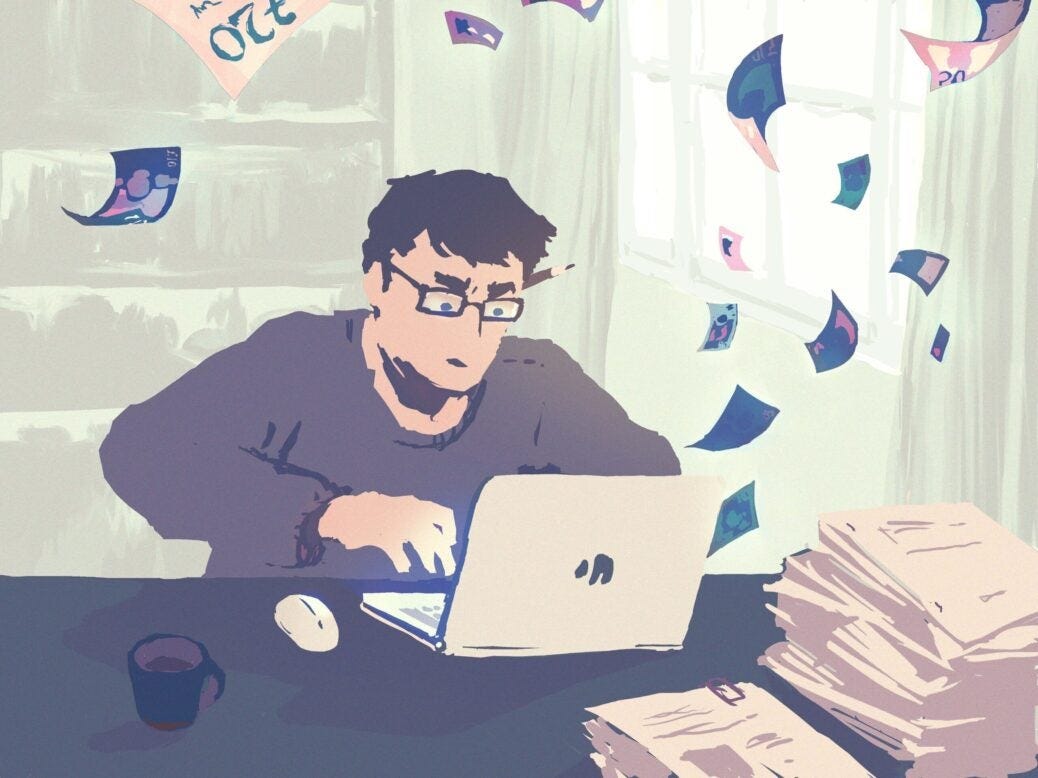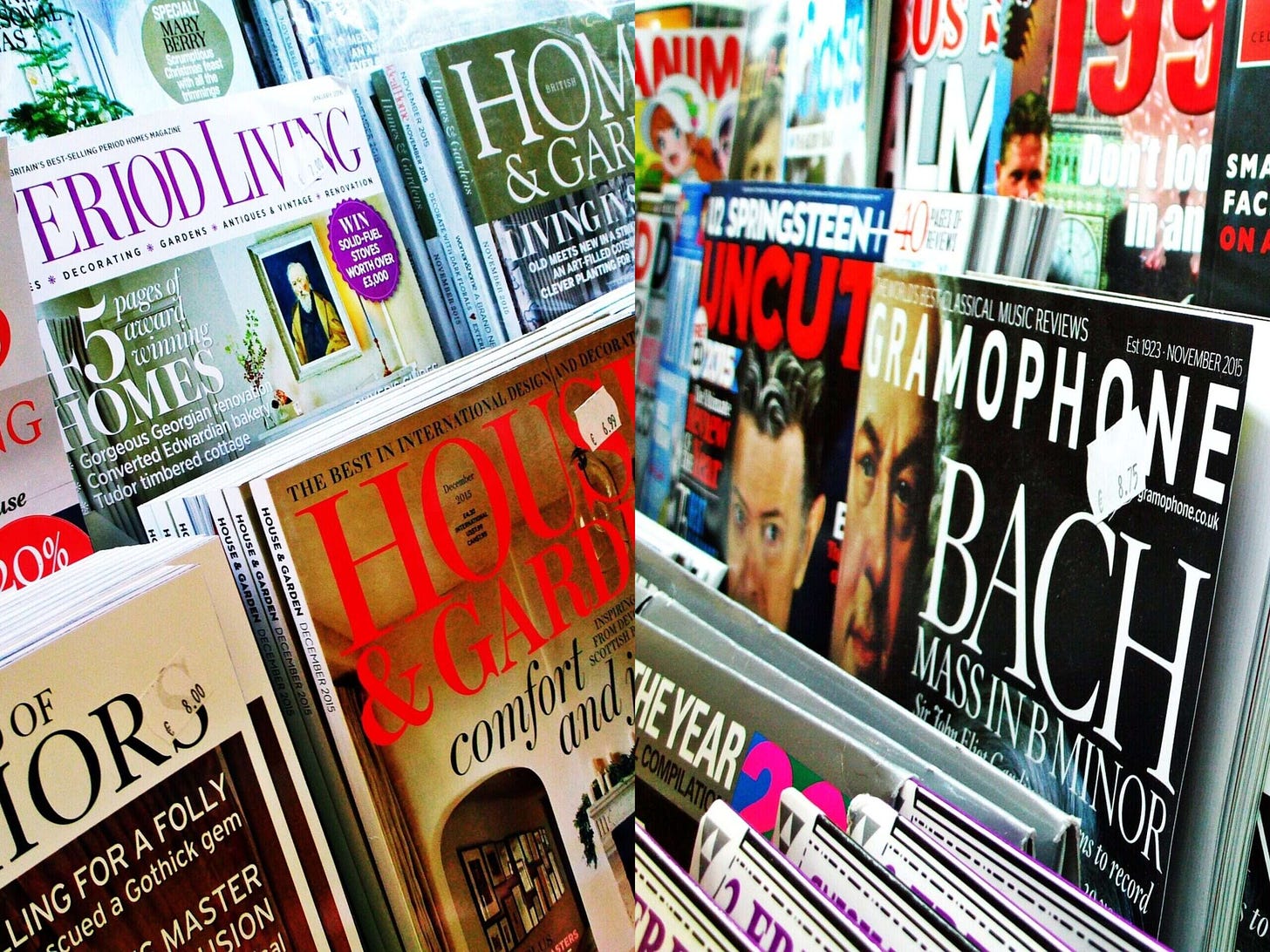Facebook delivers hit to publisher revenue | Freelance 'Wild West' exposed
And why can't tech giants stop facilitating illegal attacks on a free press?
Welcome to your daily newsletter from Press Gazette on Wednesday, 20 March.
Freelance journalism is an essential part of the media ecosystem. It allows publications to grow quickly without the commitment of employing staff. It vastly spreads the diversity of expertise that individual titles can draw upon. And it means far more stories get told.
Sadly, freelances are an endangered species in the UK, a new report has found. Pay rates for those working full-time as freelance journalists are far lower than those in other professions and most can only afford to do it at all by taking on other work outside journalism.
A new survey from the Authors' Licensing and Collecting Society and NUJ provides a snapshot of freelancing in the UK which it describes as like the "Wild West" (only without any gold rush, it would seem).
We also report from a panel event in London where the BBC's Clive Myrie revealed he was targeted by Russian-backed misinformation on Facebook and campaigning lawyer Caoilfhionn Gallagher KC urged tech giants to do something about the daily online threats she faces as a result of representing jailed Hong Kong publisher Jimmy Lai.
Press Gazette has long campaigned for a rebalancing of the news ecosystem to provide news publishers with a fair share of online advertising revenue. And while that might still seem a utopian dream to many, it does not seem outrageous to expect vastly wealthy tech giants to stop facilitating illegal attacks on a free press.
A new survey of UK online publisher revenues sheds further light on the challenges with that online ecosystem. In a growing advertising market, the share of revenue going to online publishers declined sharply in 2023. Subscriptions and revenue arising from first-party data are the two main areas where online publishers are seeing growth.
Meanwhile, the blurry video of Princess Kate and Prince William shopping raises as many questions as it answers.
The Sun paid a member of the public big money for video of the royal pair visiting their local farm shop at the weekend, potentially re-opening the market for the sort of paparazzi-style images which upset Prince Harry so much.
The IPSO code (which closely follows the law) states: "It is unacceptable to photograph individuals, without their consent, in public or private places where there is a reasonable expectation of privacy."
This suggests Kensington Palace must have okayed publication of the video.
As with the recent image of Kate and William leaving Windsor in a car, where only the back of her head was visible, why is the Palace only allowing such grainy, unclear images to appear which allow conspiracy theorists to have a field day? And why is it apparently muddying the waters between the private and public sphere?
It is a dangerous game to insist on privacy, but allow intrusions when it suits your PR agenda.
New from Press Gazette
Low pay and ‘no rights’: Survey reveals ‘Wild West’ for UK freelance journalists
Freelances working full-time in journalism in the UK earn an average of £27,000 per year with payment rates “stagnating”, according to a new survey.
Jimmy Lai lawyer reveals daily online threats and frustration with big tech
The lawyer for imprisoned Hong Kong journalist Jimmy Lai woke up on Tuesday morning to 11 threats of rape and dismemberment, she told a London panel discussion.
Online publishers hit by declining Facebook and advertising revenue in 2023
Overall digital revenue for the quarter was down 1.8% compared to Q4 2022 although half of the 13 publishers reported positive revenue growth for the quarter. The represented publishers reported a total of £174m in digital revenue in the period.
News in brief
Culture Secretary Lucy Frazer is "minded to" refer Redbird IMI's Telegraph Media Group bid to an in-depth investigation, saying Ofcom found UAE-backed IMI "may have the incentive to influence TMG in a way that could potentially act against the public interest in the UK". (DCMS)
Frazer also defended close scrutiny of the UAE-linked Redbird IMI deal to buy The Telegraph when the same person, Sheikh Mansour, was able to buy Manchester City. She said they are "totally different" and the UK is "open for business" for non-media foreign investment. (The Telegraph)
The EU has adopted an anti-SLAPP law with safeguards for those targeted with abusive lawsuits. Journalists will be able to ask the court to dismiss a "manifestly unfounded claim" at an early stage and if they succeed the claimant would pay their costs. (Council of the European Union)
A US non-profit has cancelled the ceremony for the Justice Ruth Bader Ginsburg Leadership Award after outrage over a plan to bestow it on Rupert Murdoch and Elon Musk, with Ginsburg's family calling the recipients an "affront" to her memory. (NPR)
The News Media Association has said the BBC's plan to run ads alongside its podcasts on third-party platforms is "very alarming. Such an intervention will profoundly distort competition, wreaking havoc on commercial players right across the media and advertising sector”.
Adweek has appointed Ryan Joe as its editor-in-chief. He joins from Business Insider where he has spent three years as advertising editor and he previously spent eight years as managing editor at Adexchanger. (Adweek)
Fast Company has named Semafor (for "breaking the news format to be more readable and transparent"), The Business of Fashion (for its use of AI) and Industry Dive (for "diving deep into business niches") as among the most innovative media companies of 2024. (Fast Company)
The University of Huddersfield and press regulator Impress are working together on developing training in ethical journalism for those working in online and print media. (University of Huddersfield)
The first launch from News Studios, the new video division created at News UK with the linear closure of TalkTV, is Never Mind the Ballots, a weekly politics show hosted by Sun political editor Harry Cole on The Sun website and Youtube. (The Sun)
Latest podcast
Podcast 67: Magazine ABCs winners and losers with Nada Arnot of The Economist
Press Gazette editor-in-chief Dominic Ponsford discusses the latest UK magazine industry circulation figures with reporter Bron Maher.
They pick out the winners and losers from the latest crop of results and also hear from Economist executive vice president Nada Arnot about how the title’s cut-price daily edition Expresso achieved lift-off in 2023. She also explained why she is bullish about The Economist’s headline (print and digital) circulation figures returning to growth in this election year.
Also on Press Gazette
‘Diversity still not a priority in practice’ in news industry, survey finds
GB News editorial chief says channel in biblical fight with TV ‘Goliaths’
Good Housekeeping MD Liz Moseley’s ambitious growth plan for 102-year-old brand
Making sense of the chaos and building trust: How ITV’s The Crossing was produced
Press Gazette live
Entries are now OPEN for the Future of Media Awards 2024 (which celebrate the best journalism-based digital products). Check out the full list of categories here. Note: These awards are free to enter.






